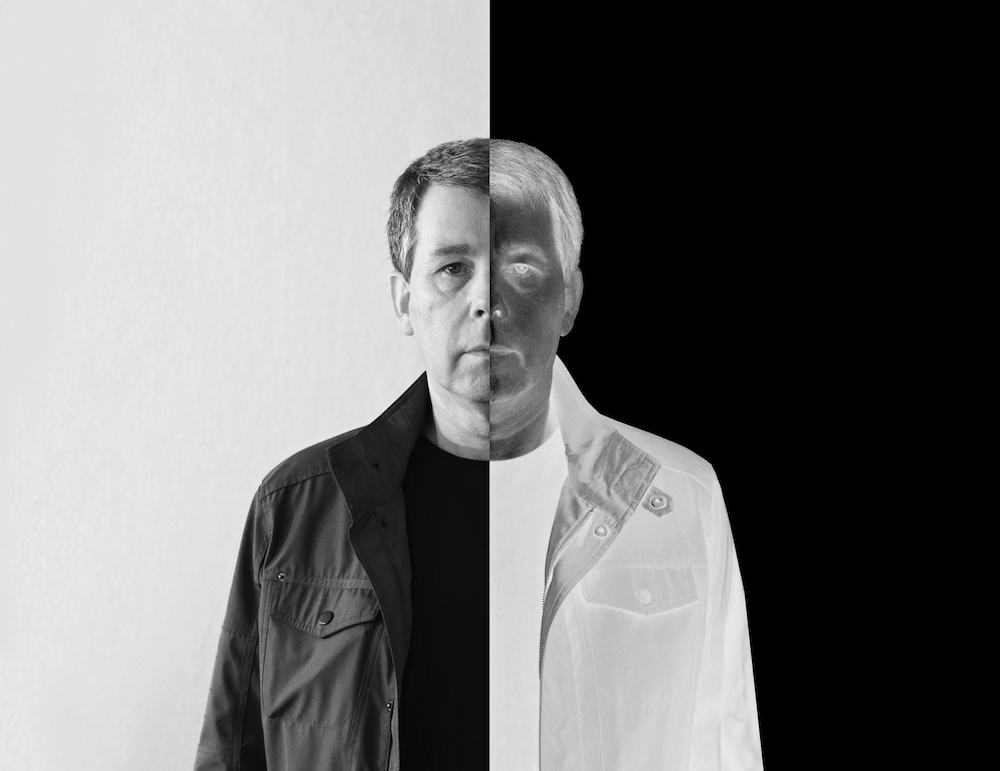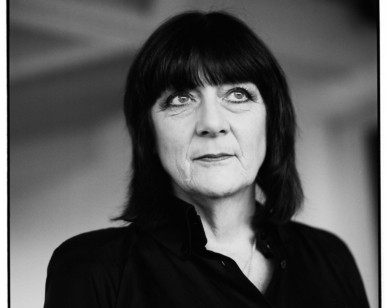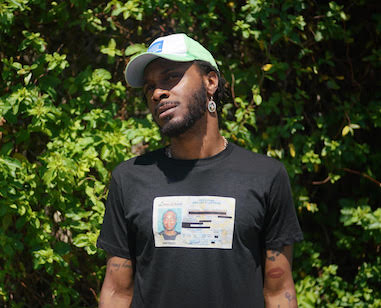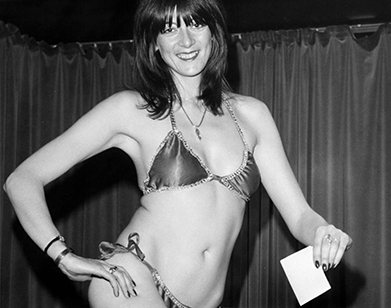Throbbing Gristle co-founder Chris Carter is still pushing the limits

Over the 50-odd years since the start of his trailblazing career, legendary electronic composer Chris Carter’s beguiling work has straddled the line between feeling completely alien and deftly comforting. He uses radical technologies to shape moods both harsh and melodic, restorative and confrontational, all within the same moment. In 1976, Cosey Fanni Tutti, Genesis P-Orridge, Peter “Sleazy” Christopherson and Carter started landmark industrial act Throbbing Gristle. As the resident gearhead, Carter forged his soundscapes by soldering circuits, contributing as much to the progress of experimental music hardware as to sound itself. As one-half of the duo Chris & Cosey (alongside his longtime partner and collaborator Cosey) he set the stage for a world of techno that soon blossomed around him. In his solo works, Carter managed to wrangle vast ambient landscapes and thrumming beats alike. His newest project, the 25-track collection of electronic vignettes titled Chemistry Lessons Volume 1, released through Mute on Friday, March 30, explores that boundary between the humane and the mechanical yet again. Composed as a meditative practice for Carter, largely following the 2010 death of Throbbing Gristle member and close friend Christopherson, Chemistry Lessons Volume 1 is Carter’s first proper solo record in 17 years. We caught up with the inexhaustible Carter by phone from his Norfolk, England home, to chat music practice as therapy, the continued role of synthesizers, Tutti’s blockbuster book, and more.
DALE EISINGER: In terms of your record, how did you decide that it needed to be that length?
CHRIS CARTER: It’s funny because that’s edited down. That’s why it’s Volume I. Because I recorded it over such a long period of time, they just accumulated. I developed this workflow of recording shorter tracks. I find when I’m working with synthesizers, and when I’m on modular synthesizers, I tend to meander. And I was recording these really long, meandering tracks. So I thought I’d go in the opposite direction and record shorter tracks. But the result of that was that I had lots of shorter tracks.
My modular is relatively large, and I look at it and sometimes I’m quite daunted by it. But then you start to get drawn into it, and before you realize it, someone’s knocking on the door: “You’ve been in there 3 hours and you’re still working on the same patch.” It happens so easily. So I really wanted to get out of that thing. So I have this collection of musical sort-of notes. I would listen to those on my laptop but then I’d go back the next day and try to construct something around that melody or the bass line or a rhythm, but keeping in mind that it would be a short piece, that I didn’t want it to go on and on. If it was a Chris & Cosey track, they were short enough to be intros to longer tracks and I quite like that, sort of hinting at that. You know, “it’s going to really kick off in a minute,” but no, that’s the end of the track.
EISINGER: In terms of the modular synthesizers, that’s really blown up in the past few years. How do you see yourself positioned in that, given you’ve been working with those instruments for so long?
CARTER: It’s not such a big thing for me because I’ve had a modular since the mid seventies. At the turn of the century, 1998, 1999, I sold a lot of the stuff I had in the studio. I had this midlife crisis, I suppose you’d call it. I had a really big modular system, I sold it, regretted it almost immediately, and started building it back up again. So there’s been very little time in my life where I haven’t had a modular system. But for me, the current resurgence is good because people are bringing out new modules and new concepts that just didn’t exist when modular was in its fallow period in the 80s and 90s. It was an indulgence a bit then, I think. But now, with so many companies and so many people doing it there releasing some amazing modules and you get drawn into it. It’s a bit addictive really.
EISINGER: It’s been 17 years since you’ve released a solo record. Working on so many different projects and over such a great lengths of time, how do you know when you have a collection that’s finished and ready to put out into the world?
CARTER: It’s funny because I’ve been recording these short tracks, it wasn’t for a few years that I even thought it was an album. Initially it was just something for me to do in between everything else I’m doing, almost as a form of relaxation. I started out doing these tracks at the end of TG, TG’s second time around, and I did it to take my mind off everything else that was going on. It was very experimental at the beginning. And then Sleazy passed away and it stopped me in my tracks. But when I went back to it, I’d realized that I was slowly collecting quite an arrangement of different tracks which were reflecting my moods at the time. That’s why some of the tracks on the album are quite melancholy and some are more upbeat. No one had heard any of this material. I hadn’t played it to anyone. Cosey was the only one that had heard some of the tracks and I’d run some past her, but it wasn’t even an album. It was an exercise initially. Putting ideas down on tape as a form of therapy.
EISINGER: When you talk about Sleazy passing away which, I’m so sorry, I know how huge he was in your life, did that affect how you were approaching your music or was it really just that it affected your mood?
CARTER: I think both actually. At the time, he’d gone back to Bangkok and we were starting this new project, the three of us, called XTG. We’d even done a gig. So we were quite riled up and working on that and we had new ideas and we were working on different techniques for the sound. So there was this double blow of losing a friend and this whole big project that we were going to do just coming to a complete stop. It was quite overwhelming.
EISINGER: Were any of those techniques that you were developing for used on this new album?
CARTER: Yes. I’d been discussing with Sleazy that we weren’t sure how to do the vocals, either on record or live. And we were discussing this way of doing them with artificial voices. He wanted to go in one direction and I wanted to go in another. He wanted to do it with software, which sounded a bit too artificial for my ear. So I went off in a slightly different direction, using actual human voices but manipulating them. We were working on things like that and he was having small sound-generating boxes built and I was helping him modify those. The whole project was going to be quite new, I think. When I picked up the album again, I went back to trying out these vocal experiments that we’d started before he died.
EISINGER: And the vocals on the new record. Is that your voice because it to me sounded like a computer?
CARTER: I do a lot of field recording, as I have done for years, and I’ve collected lots of voices. I have snippets of people singing, myself. Sometimes it’s a vocalizer, sometimes it’s manipulating software. I’ve been stretching voices in time and space so they have this weird quality, so it sounds human but it artificial at the same time.
EISINGER: Can you tell me about this record being inspired by 60s Radiophonic?
CARTER: It’s a thread that runs through my life. I grew up with the BBC listening to transistor radio and watching the BBC on TV. It wasn’t until later that I realized this, but quite often, the BBC Radiophonic Workshop, they had such a breadth of talent there. They would do jingles. They would do sound effects for plays. They would do scene tunes, experimental, really off-the wall stuff. They did sound effects for comedy shows. All of that sort of sunk into my psyche over the years and it’s definitely flavored my taste in music and sound. It comes out in the album. You might have a track that’s got quite a pleasant melody but I like to put odd sounds into the background to skew the whole thing slightly. I like the mixture of experimental sound and melody, together. I think they work quite well together sometimes.
EISINGER: Did you not work in the broadcast field at some point in your life?
CARTER: I did. When I left school, my first job was an assistant sound recorder. And then I worked for ABC news, an American company, in their London bureau, for a couple of years, installed one of their studios. In fact, they tried to offer me a full-time job but it was just as TG was taking off and it was like, do I work for ABC or do I go and do this career change with Throbbing Gristle? so I went with Throbbing Gristle.
EISINGER: Seems like an easy choice.
CARTER: I guess so. It was quite hard at the time because they were offering me decent wage and I’d be traveling around the world and doing all sorts of work. But I’d fallen in love with Cosey [Fanni Tutti] by then so that was a major factor.
EISINGER: In terms of Cosey, her book, Art Sex Music, caused quite a stir in the music journalism community. How did you feel about all that explicit detail coming to light in that way?
CARTER: Because I was with Cosey while she was writing it, and it took her two years to write it, and she was under a lot of pressure to write it, a lot of people wanted her to write her story and, it was quite traumatic writing it, I think really. But I read many drafts of the original manuscript. So it slowly grew into the whole story. But bits of the story I didn’t fully understand until I read the book until she put it down on paper. A lot of it, of course, I did know because I was there. I was just proud of what she did and that she had the courage to actually put it out there. Really proud of her.
EISINGER: What does Chemistry Lessons refer to? I’m even more curious now that you’ve said this was sort of a meditative process. Chemistry, to me, doesn’t seem so meditative.
CARTER: When I started this between Throbbing Gristle and Chris & Cosey things, just as a way of relaxing, I set up a small workbench in the corner of our studio and originally I was just going to make some circuits and put them together and then record what I was doing with them, very experimental. And then it slowly developed into the whole concept of going to the modular and recording these short tracks. It was all very alchemical and like working with chemistry. It’s harking back to the Radiophonic of the era, of the 60s, that white lab coat sort-of thing.
CHRIS CARTER’S CHEMISTRY LESSONS VOLUME 1 IS OUT THIS FRIDAY, MARCH 30, ON MUTE.



